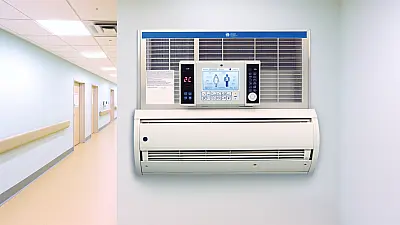COMMERCE, GA - Federal inspectors documented multiple safety violations at Hill Haven Nursing Home during a February 2025 complaint investigation, including dangerously hot water temperatures in resident rooms and improper storage of respiratory equipment that could increase infection risk.

Dangerous Water Temperatures Documented in Multiple Rooms
During the February 18, 2025 inspection, federal surveyors working alongside the facility's Maintenance Director discovered water temperatures significantly exceeding safe limits in five of 38 resident rooms. Using the facility's digital thermometer, inspectors measured water temperatures ranging from 132 to 137 degrees Fahrenheit in four rooms, with one room reaching 108 degrees.
These temperatures far exceed the facility's own policy, which mandates water temperatures not exceed 120 degrees Fahrenheit in resident areas. More critically, they surpass the 110-degree threshold recognized by healthcare safety standards as the maximum safe temperature to prevent scalding injuries in vulnerable populations.
Water temperatures above 110 degrees Fahrenheit pose serious burn risks, particularly for elderly residents who often have decreased sensation, slower reaction times, and compromised skin integrity. At 130 degrees, human skin can sustain second-degree burns in just 30 seconds of contact. For nursing home residents with conditions like diabetes, dementia, or mobility limitations, the risk becomes even more pronounced as they may be unable to quickly remove themselves from dangerous situations.
The facility's water temperature monitoring system showed significant gaps in oversight. While the maintenance director reported conducting monthly temperature checks, the inspection revealed inconsistent monitoring practices. Temperature logs showed checks completed only on November 6, 2024, December 19, 2024, and January 16, 2025, with recorded temperatures ranging between 94 and 120 degrees - suggesting the dangerous temperatures developed between routine inspections.
Following the initial discovery, facility staff took immediate corrective action. When temperatures were rechecked later the same day, all previously problematic rooms showed readings between 100.8 and 109 degrees Fahrenheit, within acceptable safety parameters.
Respiratory Equipment Storage Compromises Patient Safety
Inspectors also identified serious deficiencies in respiratory care protocols that could expose residents to preventable infections. The investigation focused on a resident with severe cognitive impairment who had diagnoses including pneumonia and respiratory failure, requiring nebulizer treatments for breathing difficulties.
During multiple observations on February 18 and 19, surveyors found the resident's nebulizer mouthpiece stored improperly - lying uncovered on the bed and at the bedside, exposed to environmental contaminants. The facility's own oxygen administration policy requires that used respiratory supplies be discarded into designated containers and that equipment be properly stored when not in use.
Improper storage of respiratory equipment creates significant infection control risks. Nebulizer mouthpieces and tubing can harbor bacteria and other pathogens when left exposed to the environment. For residents with existing respiratory conditions or compromised immune systems, contaminated equipment can lead to secondary respiratory infections, pneumonia, or worsening of existing conditions.
A Certified Nursing Assistant interviewed during the investigation acknowledged awareness of proper storage procedures, stating that respiratory tubing should be stored in clear plastic bags when not in use to "cut down on infections and germs." However, the facility lacked a systematic logging system to ensure compliance with these critical safety protocols.
The Director of Nursing confirmed that Sunday night shift staff were responsible for ensuring proper storage and maintenance of respiratory equipment, but admitted no documentation system existed to verify completion of these essential tasks.
Medical Context and Industry Standards
Both violations represent fundamental failures in basic safety protocols that nursing homes are required to maintain. Water temperature control systems must include regular monitoring, proper thermostat calibration, and immediate corrective action when readings exceed safe parameters. Industry best practices recommend temperature checks at multiple points throughout plumbing systems, not just periodic spot checks.
For respiratory care, infection prevention protocols require that all equipment touching residents' airways be properly cleaned, stored, and maintained. The Centers for Disease Control and Prevention emphasizes that respiratory therapy equipment poses particular infection risks and must be handled with strict adherence to sterile technique principles.
Additional Issues Identified
The inspection documented these violations alongside other compliance concerns. While no residents sustained documented burn injuries related to the water temperature violations, the potential for serious harm remained significant given the vulnerable population served.
The facility's corrective actions included immediate temperature adjustments and implementation of enhanced monitoring protocols. However, the violations highlight systemic gaps in safety oversight that required comprehensive policy review and staff retraining to prevent recurrence.
Full Inspection Report
The details above represent a summary of key findings. View the complete inspection report for Hill Haven Nursing Home from 2025-02-20 including all violations, facility responses, and corrective action plans.
💬 Join the Discussion
Comments are moderated. Please keep discussions respectful and relevant to nursing home care quality.